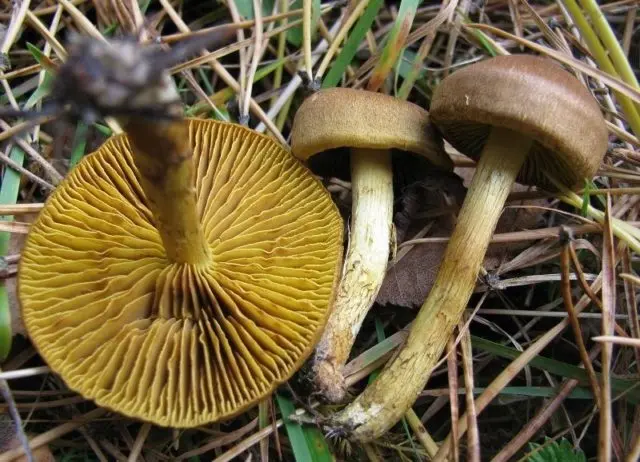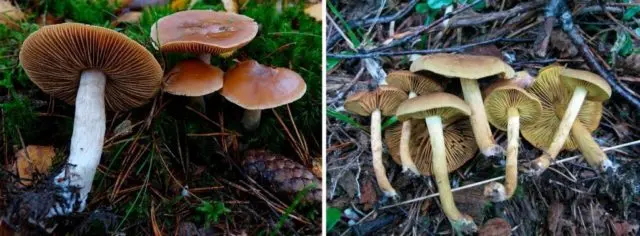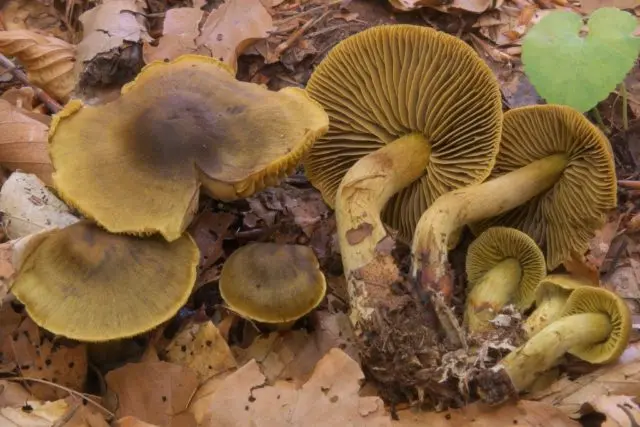Contents
The saffron cobweb belongs to the genus Cobweb, the Spider web family. It can be found under a different name – chestnut-brown cobweb. It has a popular name – a bog.
Description of the saffron cobweb
This species can be assigned to the subgenus Dermocybe (skin-like). Plate representative. The body of the mushroom is yellowish-brown in color with a lemon cobweb. It is distinguished by a dry, brightly colored leg and hat. Small in size, massive, neat in appearance.
Cap Description
The hat is not large, up to 7 cm in diameter. At the beginning of growth, it is convex, with time it becomes flat, with a tubercle in the center. In appearance, the surface is leathery, velvety. It has a reddish brown color. The edge of the cap is brownish-yellow.
The plates are thin, frequent, adherent. They can have a dark yellow, yellow-brown, yellow-red tint. As they mature, they become brown-red. Spores are elliptical, warty in appearance, initially lemon-colored, after maturation – brown-rusty.
The pulp is fleshy, has no obvious mushroom smell, but this specimen has a radish aroma.
Description of the leg
The leg is cylindrical, velvety to the touch. In the upper part, the stem is the same color as the plates, becoming yellowish or brown-orange closer to the bottom. At the top it is covered with a cobweb shell, in the form of bracelets or strips. Below is a yellowish mycelium.

Cobweb saffron in a coniferous forest
Where and how to grow
The saffron cobweb grows in the temperate climatic zone of Eurasia. Prefers to grow in coniferous and deciduous forests. It can be found near:
- will be;
- along the edges of the roads;
- on the territory covered with heather;
- on black soils.
Fruits throughout the autumn.
Is the mushroom edible or not?
Is inedible. It has an unpleasant taste and smell. The presence of toxins dangerous to humans has not been confirmed. Cases of poisoning are unknown.
Twins and their differences
Similar mushrooms include:
- Cobweb brown-yellow. It has a brownish spore-bearing layer and larger spores. Leg lighter. Edibility has not been confirmed.

- Cobweb olive-dark. It has a darker color and a brownish-yellowish spore-bearing layer. Edibility has not been confirmed.

Conclusion
The saffron cobweb grows in coniferous and deciduous forests. It has a yellowish brown color. No mushroom smell. Sometimes it smells like radish. Has a number of similar representatives. Not edible.











